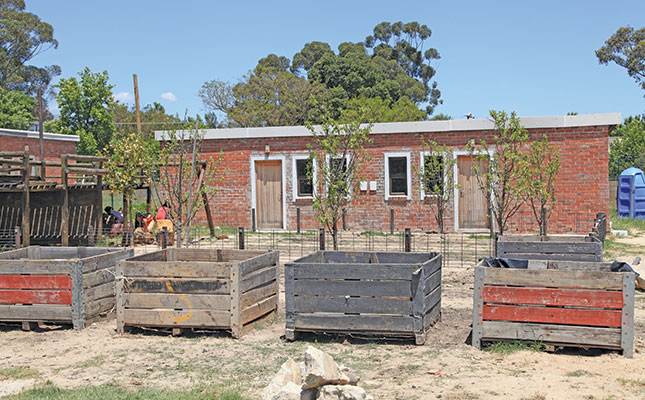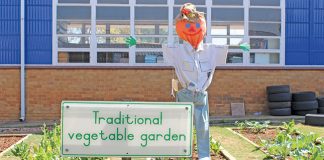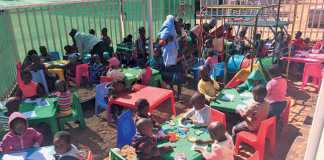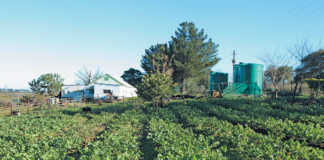
Photo: Glenneis Kriel
Since its founding in 2009, the non-profit organisation Mosaic Community Developments (Mosaic) in Wellington has cared for the physical, emotional and mental well-being of orphans and vulnerable children (OVC) participating in its programmes.
And over the years, it has evolved ever-better ways of achieving this, improving its techniques and its facilities. For example, to better address the needs of these youngsters, Mosaic recently developed OVCmeasure, an easy-to-use yet scientifically rigorous measuring and evaluation tool specifically designed for OVCs. The tool is the first of its kind in South Africa.
“We tend to focus on the emotional well-being of our children, but they need more than affection and good care to thrive. The aim of OVCmeasure is to take the emotion out of decision-making, and identify and address risks before they turn into real problems,” says Meyer Conradie, CEO of Mosaic.
The tool is used to measure the well-being of children based on emotional, educational and nutritional parameters, and has been made available commercially for other organisations.
A group of farmers near Groblershoop in the Northern Cape, for instance, is using the tool to monitor the well-being of children who attend a communal farm school and aftercare services.
Declining food security
During the first COVID-19 lockdown in 2020, data obtained via the tool showed that the majority of families participating in Mosaic’s programme did not have enough to eat.
“Many of the foster parents and caretakers lost their jobs, leaving them without an income to buy food, while movement restrictions exacerbated the situation by distancing people from their community and support networks,” says Conradie.
He foresees that the situation will worsen over the next few years as population growth puts even more pressure on food supply systems.
Mosaic’s solution was to establish partnerships and plant food gardens to strengthen food security for the families it supported.
The first requirement was water, and here the Hopewell United Methodist Church in the US played a key role by sponsoring the sinking of two boreholes in Wellington, one at the community centre and the other at the housing site, to supply residents and the garden with water. The borehole at the housing centre is 64m deep.
Another partner is Agri Western Cape, which connects Mosaic with agricultural experts and service providers. These suppliers have already donated irrigation equipment, seed, a water pump and planting crates. GEE Projects, which is overseeing the project, assisted with the layout of the gardens and donated 30 fruit and nut trees for the housing site.
“We’re still awaiting seed for vegetables, which we’ll plant in old crates that will be painted to breathe new life into them, and we’re planning to plant granadillas in between the houses to beautify the area,” says Conradie.
Earlier this year, Mosaic also started experimenting with the vertical planting of spinach at its community centre, where there is little space for a food garden.
“The idea is to expand this initiative to our other sites as we become more proficient in production,” says Conradie.
While the residents are already helping in the garden, someone will be appointed to take care of it.
“The primary objective with the garden is to increase the food security of the families, while equipping them with skills and inspiring them to one day start their own food gardens.
“However, we don’t want the garden to turn into a burden; it should be a means for carers and children to escape from their everyday cares.”
Sarie Dietrich, who looks after two of her grandchildren, has been living at the Wellington housing site since it was established in 2018. Inspired by a neighbour, Elizabeth van Rooyen, she planted her own little vegetable garden in which she grows tomatoes and herbs.
“I love working with the soil as it helps me to switch off and reminds me of my father, who also kept his own vegetable garden. To me, the soil represents life. It’s really satisfying to watch your crops grow, pick produce from your garden, use it in your food, and share it with others,” she says.
Van Rooyen, like Dietrich, takes care of two children, and was also inspired by her father, who used to show dahlias and supplied sweet potatoes, potatoes and mealies to their local shop.
“Working in the garden is fun and helps me and the children to relax. It’s a great privilege to be able to grow your own food,” she says.
Ella Hendricks, who looks after three of her great-grandchildren, says she is excited about the prospect of harvesting vegetables and fruit, although she realises the latter will still take a few years.
“I’m really happy and grateful to everybody who made this dream come true, as I know the trees will one day yield plenty of fruit.”
The three women also help to look after the newly planted fruit trees. “While we’re waiting for the irrigation system to be installed, we take turns to water the trees. My shift starts around 5am,” says Van Rooyen.
Advantages of mosaic’s model
Mosaic differs from traditional foster and children’s homes in that 95% of the carers are family members, such as grandmothers or aunts, of the two to three children they look after. The organisation enables 93 foster parents to look after 320 children enrolled in the programme.
“The great advantage of our model is that siblings are not split into different houses; they’re left with someone they know, helping to create stability and reducing emotional trauma,” says Conradie.
Mosaic’s aim is to empower foster parents with skills and jobs to allow them to create an environment in which the children can thrive. Carers who don’t have a safe place to live can rent housing at about R200/month, including electricity and water, at Mosaic’s housing sites in Wellington and Potchefstroom in North West.
The organisation also has community centres in Port Elizabeth in the Eastern Cape and Kathu in the Northern Cape from where it supports programme participants, as well as employment projects. These take the form of a small bakery in Wellington and a larger bakery and leather workshop in Potchefstroom.
Email Carien Möller at [email protected].











